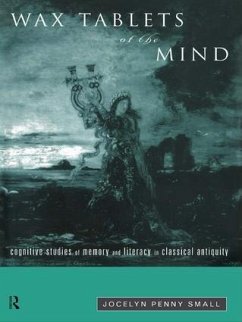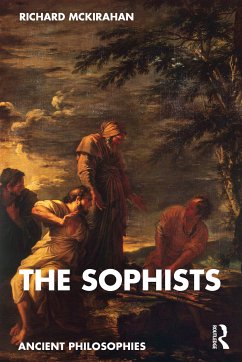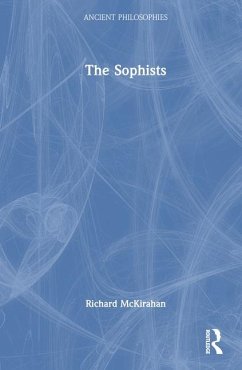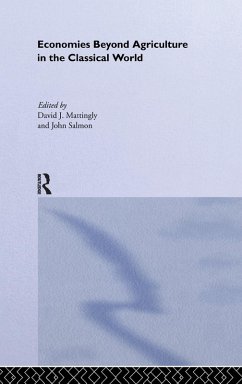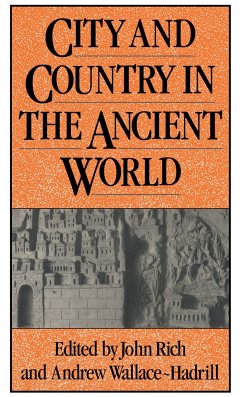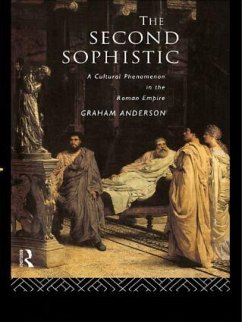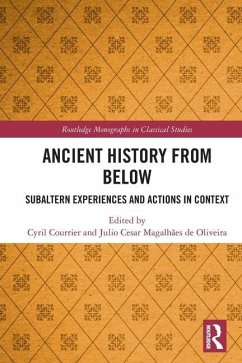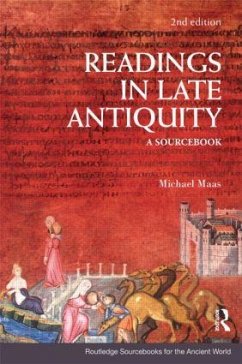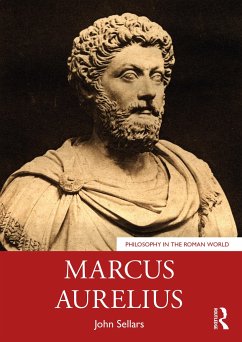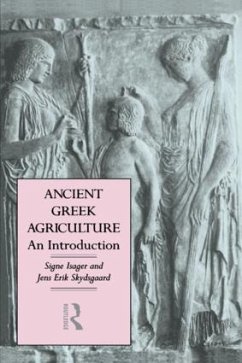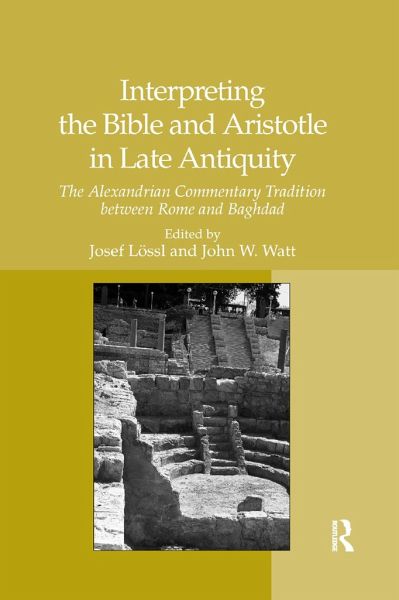
Interpreting the Bible and Aristotle in Late Antiquity
The Alexandrian Commentary Tradition between Rome and Baghdad
Herausgegeben: Watt, John W.
Versandkostenfrei!
Versandfertig in 6-10 Tagen
41,99 €
inkl. MwSt.
Weitere Ausgaben:

PAYBACK Punkte
21 °P sammeln!
This book brings together sixteen studies by internationally renowned scholars on the origins and early development of the Latin and Syriac biblical and philosophical commentary traditions. It casts light on the work of the founder of philosophical biblical commentary, Origen of Alexandria, and traces the developments of fourth- and fifth-century Latin commentary techniques in writers such as Marius Victorinus, Jerome and Boethius. The focus then moves east, to the beginnings of Syriac philosophical commentary and its relationship to theology in the works of Sergius of Reshaina, Probus and Pau...
This book brings together sixteen studies by internationally renowned scholars on the origins and early development of the Latin and Syriac biblical and philosophical commentary traditions. It casts light on the work of the founder of philosophical biblical commentary, Origen of Alexandria, and traces the developments of fourth- and fifth-century Latin commentary techniques in writers such as Marius Victorinus, Jerome and Boethius. The focus then moves east, to the beginnings of Syriac philosophical commentary and its relationship to theology in the works of Sergius of Reshaina, Probus and Paul the Persian, and the influence of this continuing tradition in the East up to the Arabic writings of al-Farabi. There are also chapters on the practice of teaching Aristotelian and Platonic philosophy in fifth-century Alexandria, on contemporaneous developments among Byzantine thinkers, and on the connections in Latin and Syriac traditions between translation (from Greek) and commentary.With its enormous breadth and the groundbreaking originality of its contributions, this volume is an indispensable resource not only for specialists, but also for all students and scholars interested in late-antique intellectual history, especially the practice of teaching and studying philosophy, the philosophical exegesis of the Bible, and the role of commentary in the post-Hellenistic world as far as the classical renaissance in Islam.





